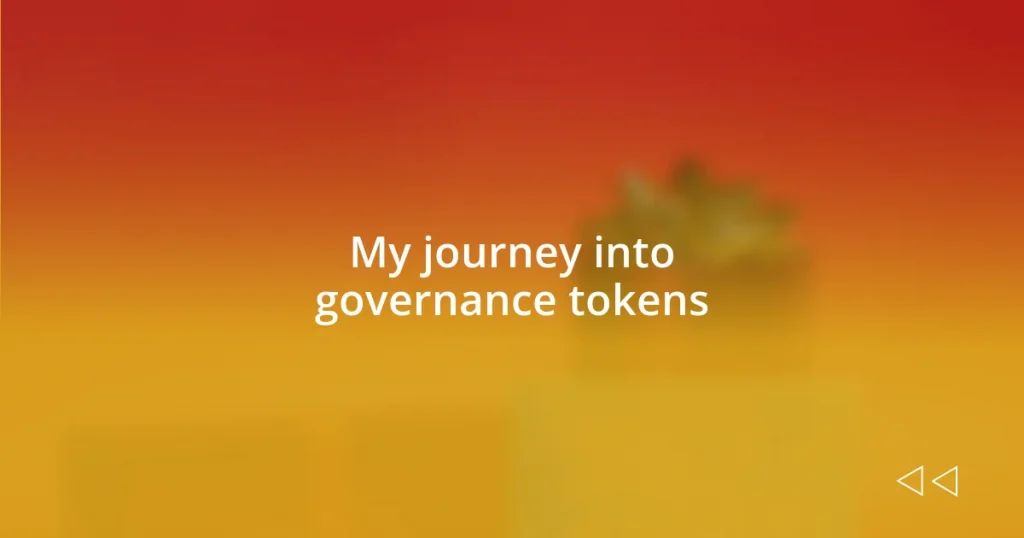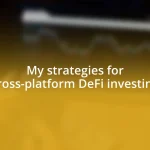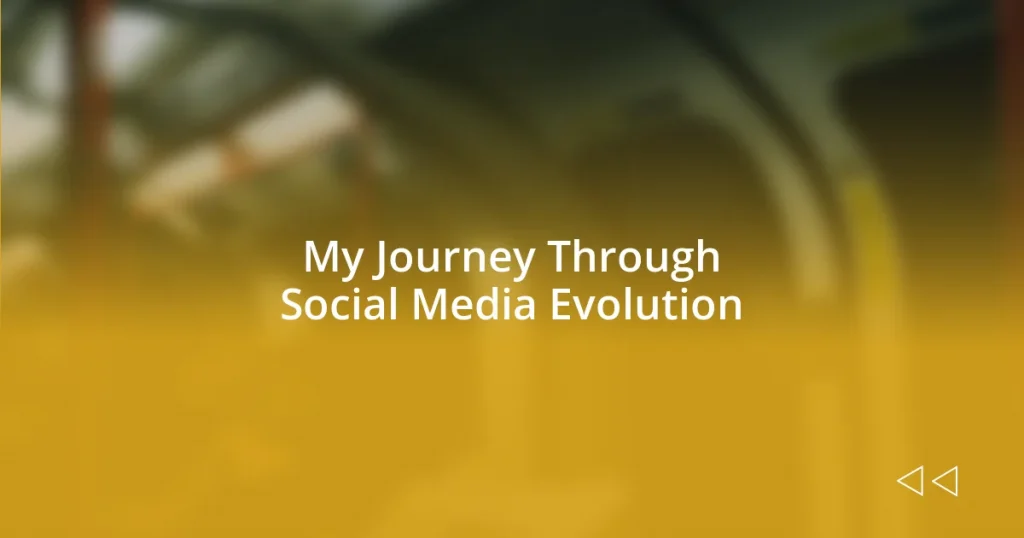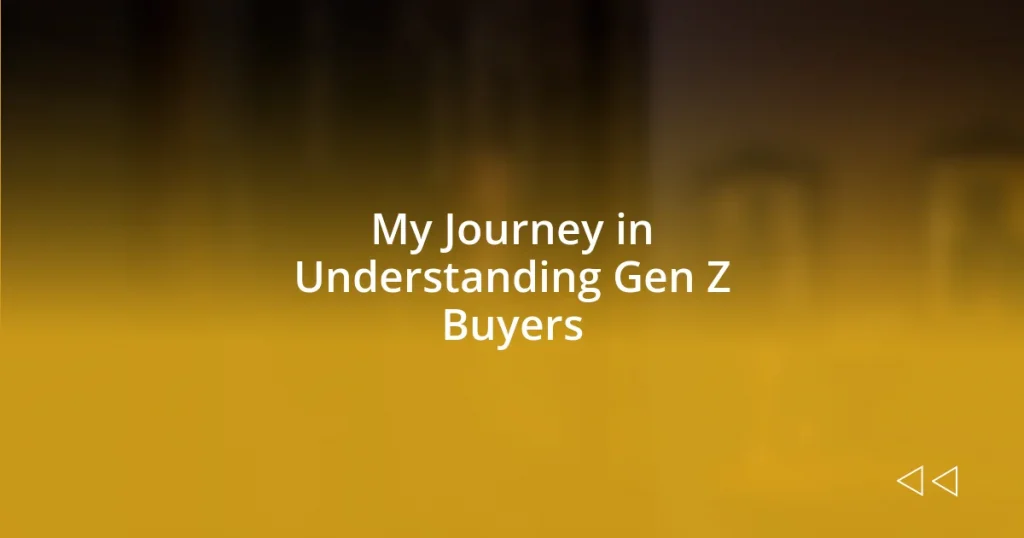Key takeaways:
- Governance tokens empower community participation in blockchain projects, allowing holders to propose changes and vote, thus shifting authority from centralized entities to decentralized governance.
- Key benefits of governance include empowerment, transparency, and inclusivity, enhancing user engagement and fostering a strong community connection.
- Future trends suggest greater integration of real-world assets, the rise of decentralized autonomous organizations (DAOs), and the development of user-friendly governance interfaces to boost participation and ownership.
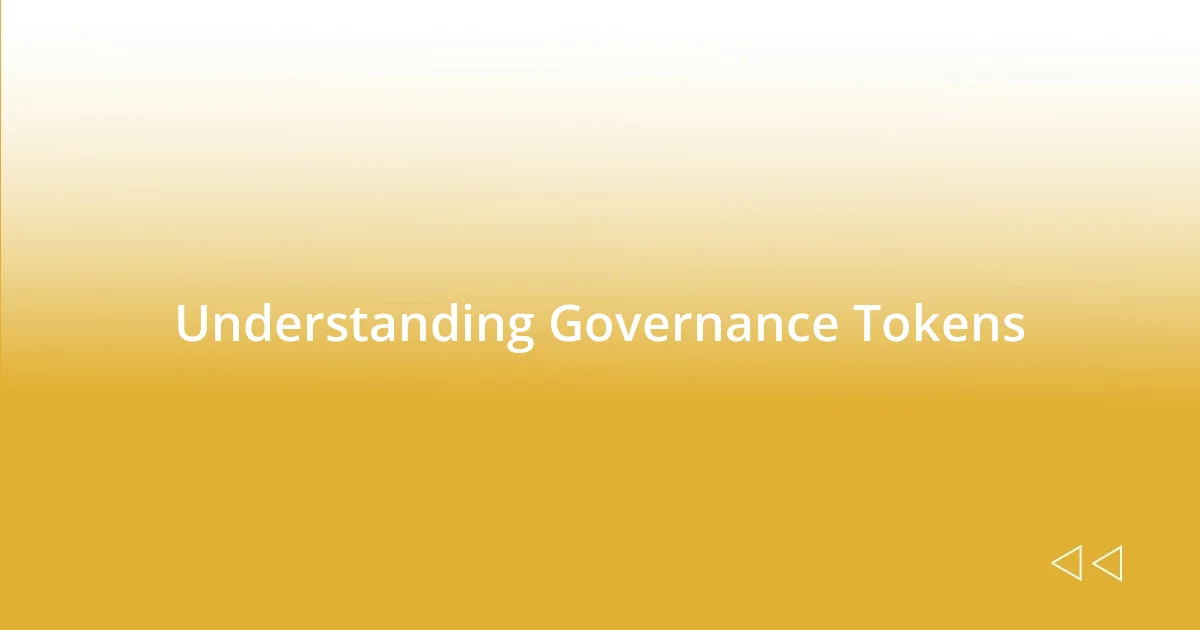
Understanding Governance Tokens
Governance tokens are essential in decentralized ecosystems, as they empower holders to influence decisions within a blockchain project. I remember the first time I participated in a governance vote; it felt thrilling to have a direct hand in shaping the future of a platform I believed in. This sense of agency can be quite liberating, don’t you think?
These tokens typically allow users to propose changes, vote on key issues, or even elect representatives, giving everyone a say in the project’s development. When I first encountered the term, I was curious about how involved I could really be. As I dug deeper, I realized that the more I engaged, the more invested I felt—it’s like being part of a community where your voice matters.
Through governance tokens, the power structure shifts, placing authority in the hands of the community rather than a centralized entity. I often wonder about the impact this could have on traditional governance systems—could our digital experiences redefine democracy itself? Addressing these questions has not only expanded my understanding but also heightened my appreciation for the role of governance tokens in shaping fairer, more inclusive platforms.
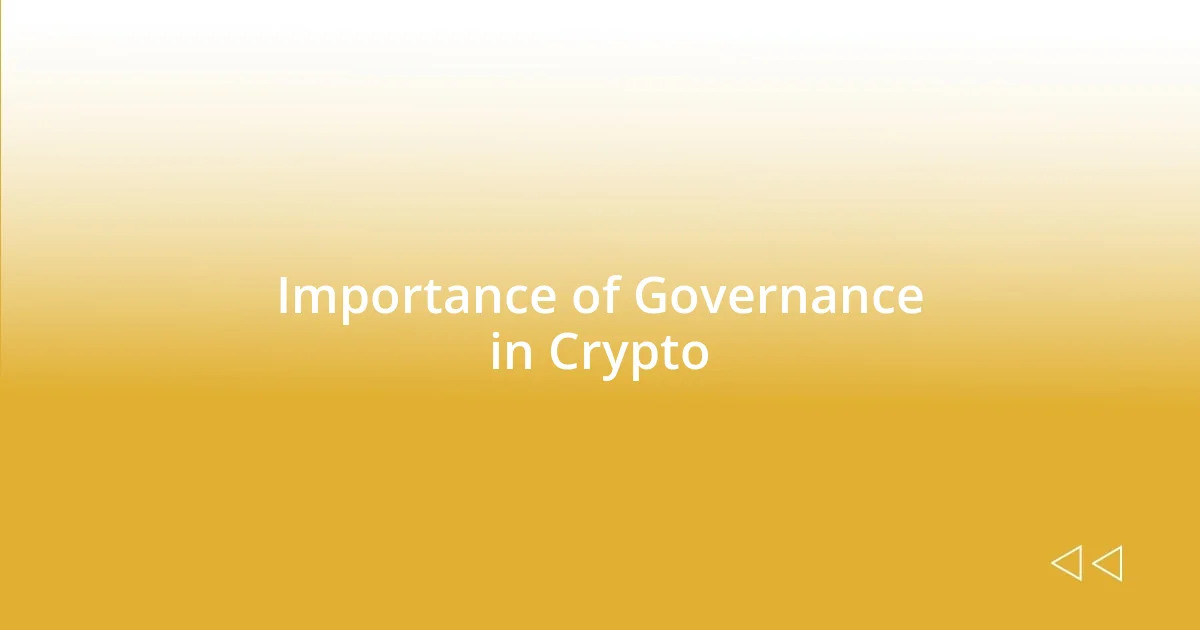
Importance of Governance in Crypto
When I delve into the importance of governance in the crypto space, I realize it acts as the backbone of decentralization. It’s fascinating how governance structures can foster transparency and accountability among participants, giving everyone a chance to contribute. I recall a time when I felt frustrated by decisions made without community input in a project I was passionate about; it highlighted the need for governance.
The role of governance in crypto can be summed up in a few critical points:
- Empowerment: Token holders have the power to influence decisions, leading to a sense of ownership and participation.
- Transparency: Governance structures often promote open discussions and voting processes, reducing opacity in decision-making.
- Inclusivity: By allowing diverse voices, governance can lead to better, more representative outcomes.
Personally, I can’t stress enough how invigorating it is to know that my opinion matters in shaping a project’s direction. This participatory aspect not only cultivates community ties but also enhances the value of the ecosystem itself.
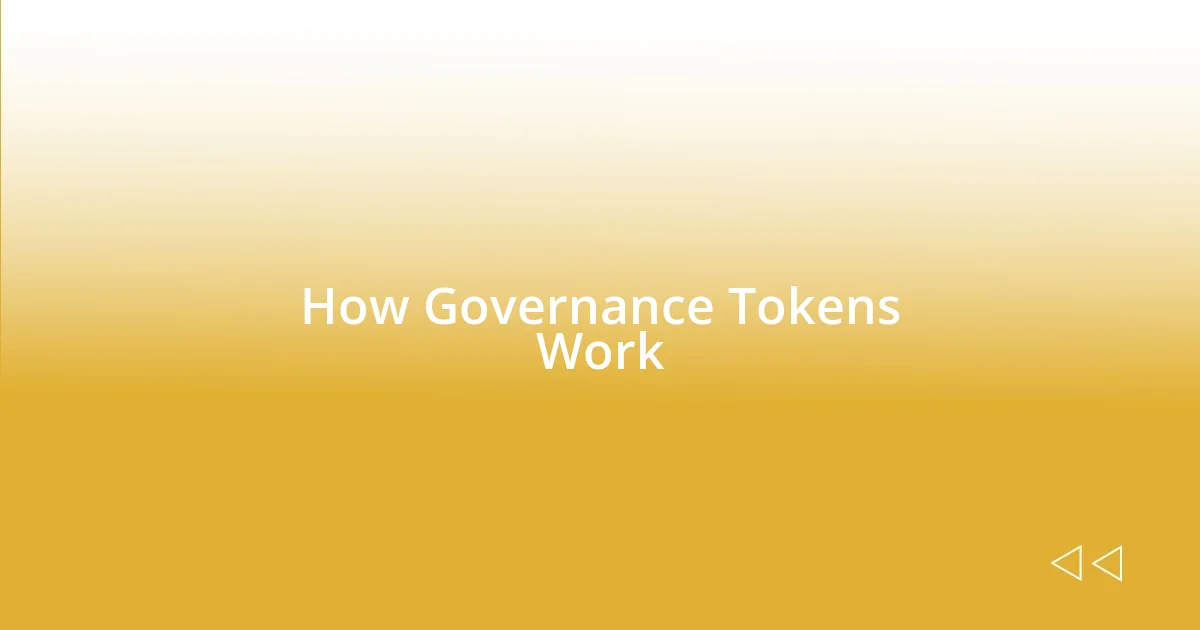
How Governance Tokens Work
Governance tokens operate on the principle of decentralization, allowing users to actively participate in the decision-making processes of blockchain projects. To give you a clearer picture, when I first learned about the governance token mechanics, I realized they utilize a voting mechanism where token holders can express their opinions on proposals. It reminded me of how exhilarating it feels to cast a vote in a local election, but the stakes often feel even more personal in the crypto space.
I’ve found that the weight of the voting power is typically proportional to the amount of tokens held, which adds a layer of strategy. Imagine learning that holding more tokens doesn’t just accumulate value, but also enhances your influence! It’s an interesting aspect that makes me think twice about my involvement in projects. I vividly recall my excitement when I voted on a major protocol change; I felt like a guardian of the ecosystem, shaping its trajectory.
In practice, governance tokens facilitate a transparent process where proposals are publicly discussed, voted on, and implemented depending on the outcome. I often reflect on how this can empower communities, much like town hall meetings where everyone’s voice matters. It’s simple yet profound—engaging in governance shapes not just the project, but also fosters a deeper connection with like-minded individuals in the space.
| Feature | Description |
|---|---|
| Voting Rights | Token holders can vote on proposals affecting the project. |
| Proposal Submission | Holders may submit their own proposals for community consideration. |
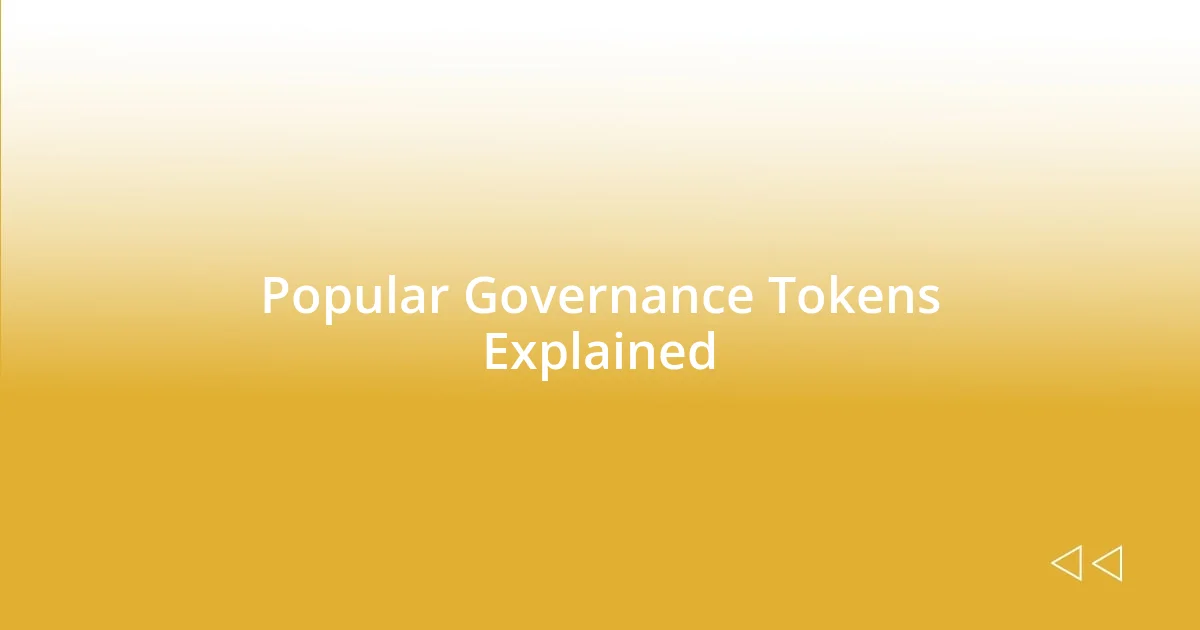
Popular Governance Tokens Explained
When considering popular governance tokens, one that often comes to mind is Uniswap (UNI). This token allows holders to vote on important aspects of the Uniswap protocol. I remember the first time I participated in a governance vote for Uniswap; the sense of community was palpable, as I realized I was part of something larger than myself, influencing future developments just by casting my vote.
Another notable example is Aave (AAVE), used for lending and borrowing protocols. As a holder, I found it incredibly intriguing that my AAVE tokens could not only earn me passive income but also empower me to vote on critical changes, such as fee adjustments and protocol upgrades. Isn’t it fascinating how something as simple as a token can grant extensive decision-making power?
Lastly, let’s talk about Compound (COMP), which is designed to facilitate lending activities on the blockchain. With COMP, users can propose changes and earn voting rights proportional to the amount they hold. I’ve often found myself mulling over the implications—what does it mean to influence the crafting of financial instruments? It’s exhilarating and intimidating, highlighting the weight of responsibility that comes with governance tokens.
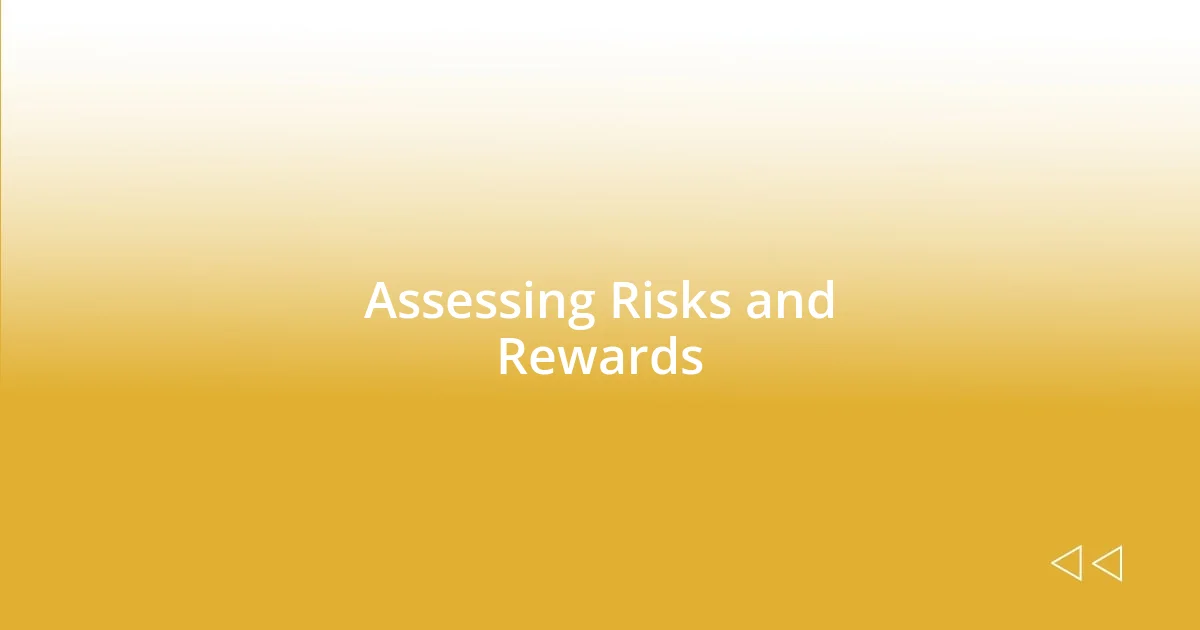
Assessing Risks and Rewards
When diving into governance tokens, the risks can be as captivating as the rewards. I remember the anxiety I felt when I first realized how volatile the market could be. One minute you’re riding high on a project you love, and the next, its value plummets. It made me question not only my financial commitment but also the stability of the community’s governance framework. So, how do you balance this precarious nature?
On the flip side, the rewards of being an active participant can be profoundly fulfilling. I once backed a governance proposal that introduced a feature I believed essential for user adoption. The moment the community voted positively, I felt an overwhelming sense of achievement—almost like winning a small victory for a cause I cared deeply about. This experience highlighted how taking risks can lead to meaningful impacts, not just for myself, but for the entire ecosystem.
Ultimately, it’s crucial to weigh both sides carefully. Each decision holds a blend of potential upside and unforeseen consequences. As I reflect on my journey into governance tokens, it becomes evident that embracing the unknown is part of the excitement. Isn’t it fascinating how the thrill of risk coupled with the potential for meaningful influence can shape our involvement in this unique digital landscape?
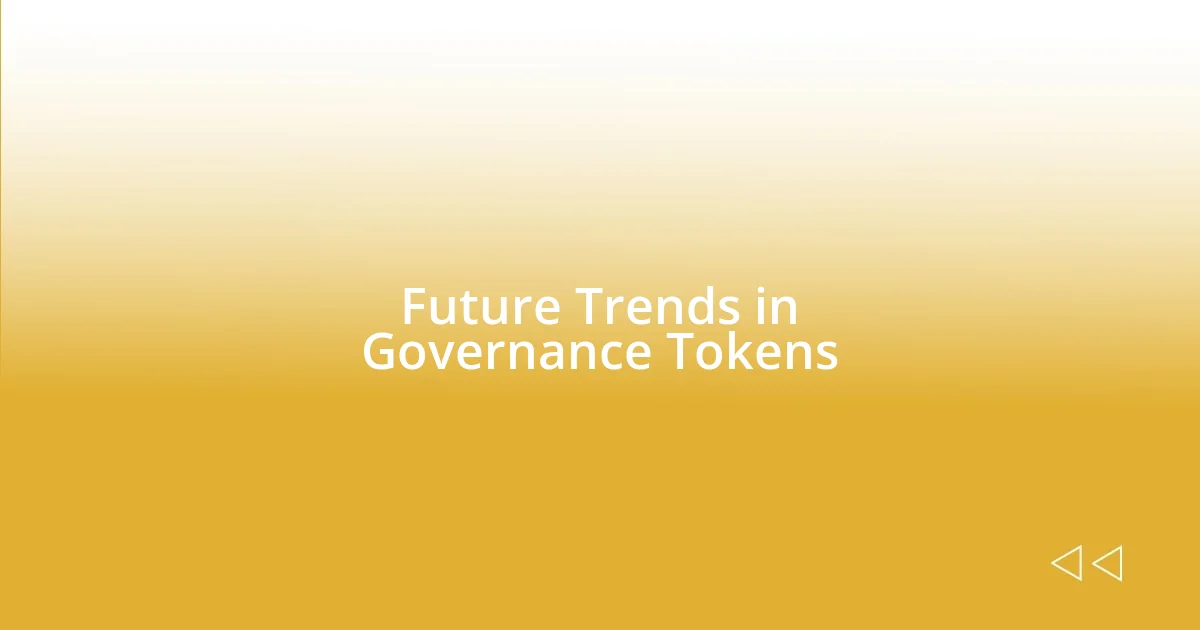
Future Trends in Governance Tokens
As I look ahead, I can’t help but feel that governance tokens are on the cusp of embracing a new era. Trends indicate an increased focus on integrating real-world assets into governance frameworks, allowing broader communities to participate in meaningful decision-making. It’s exciting to imagine how much more diverse opinions and backgrounds can enrich the governance process—after all, aren’t we more effective when we have a wider array of voices?
Additionally, I’ve noticed a growing emphasis on decentralized autonomous organizations (DAOs) that utilize governance tokens for fluid, community-driven operations. My experience with DAOs has shown me that they can empower holders in ways traditional organizations cannot. It’s fascinating to witness how these structures can expedite decision-making while maintaining transparency, but I often wonder—will they truly scale to accommodate larger user bases or will they struggle under their own weight?
Lastly, I believe we will see a shift towards more user-friendly interfaces for governance participation. Having been part of some clunky voting processes, I realize that complexity can deter engagement. Simplifying these experiences not only encourages more active participation but also deepens personal connections to the projects. I genuinely think that if governance tokens can evolve to become more accessible, they’ll not only democratize decision-making but also foster a sense of ownership that could define the future of decentralized ecosystems.










